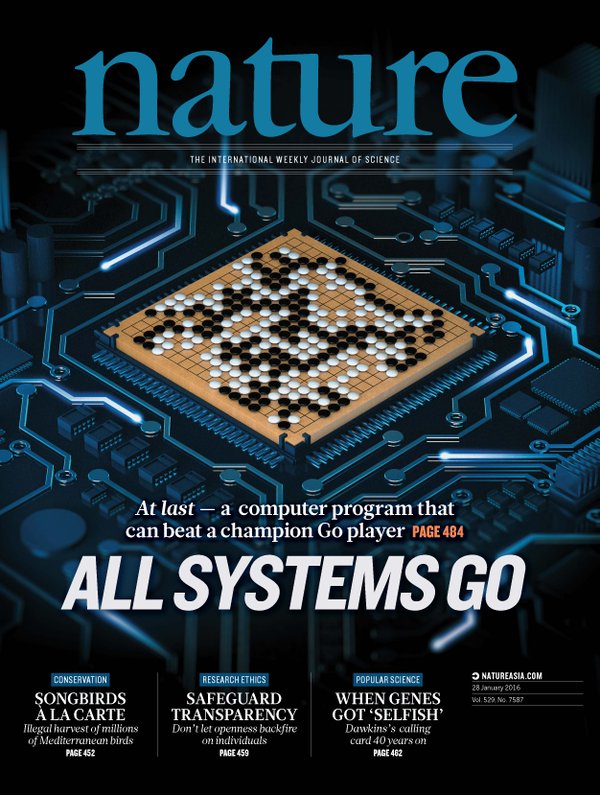
courtesy of the American Go Association

|
|
courtesy of the American Go Association |
AlphaGo recognises strong board positions by first recognizing visual features in the board. It's connecting movements to shapes it detects. Now, we can't see inside AlphaGo unless DeepMind decides they want to share some of the visualizations of its intermediate representations. I hope they do, as I bet they'd offer a lot of insight into both the game of Go and how AlphaGo specifically is reasoning about it.I'm not sure seeing visualizations of AlphaGo's intermediate representations would offer much insight into either the game of Go or how AlphaGo reasons about it, but I would love to find out. One of the things that drew me to AI when I was in high school and college was the idea that computer programs might be able to help us understand the world better. At the most prosaic level, I though this might happen in what we had to learn in order to write an intelligent program, and in how we structured the code that we wrote. At a more interesting level, I thought that we might have a new kind of intelligence with which to interact, and this interaction would help us to learn more about the domain of the program's expertise. Alas, computer chess advanced mostly by making computers that were even faster at applying the sort of knowledge we already have. In other domains, neural networks and then statistical approaches led to machines capable of competent or expert performance, but their advances were opaque. The programs might shed light on how to engineer systems, but the systems themselves didn't have much to say to us about their domains of expertise or competence. Intelligent programs, but no conversation. Even when we play thousands of games against a chess computer, the opponent seems otherworldly, with no new principles emerging. Perhaps new principles are there, but we cannot see them. Unfortunately, chess computers cannot explain their reasoning to us; they cannot teach us. The result is much less interesting to me than my original dreams for AI. Perhaps we are reaching a point now where programs such as AlphaGo can display the sort of holistic, integrated intelligence that enables them to teach us something about the game -- even if only by playing games with us. If it turns out that neural nets, which are essentially black boxes to us, are the only way to achieve AI that can work with us at a cognitive level, I will be chagrined. And most pleasantly surprised. -----